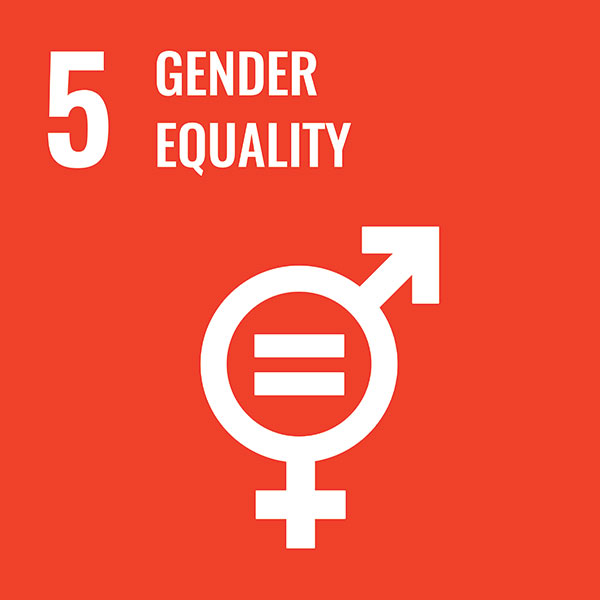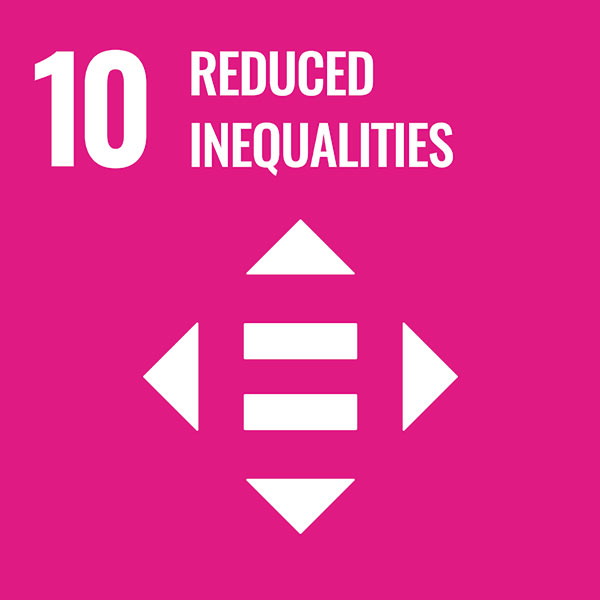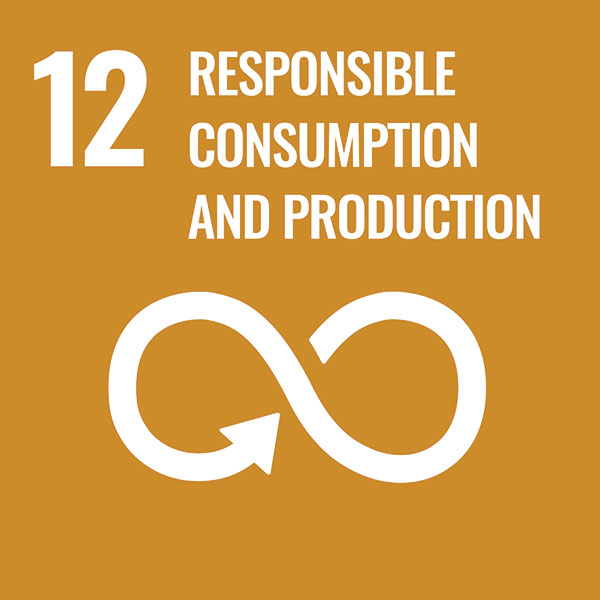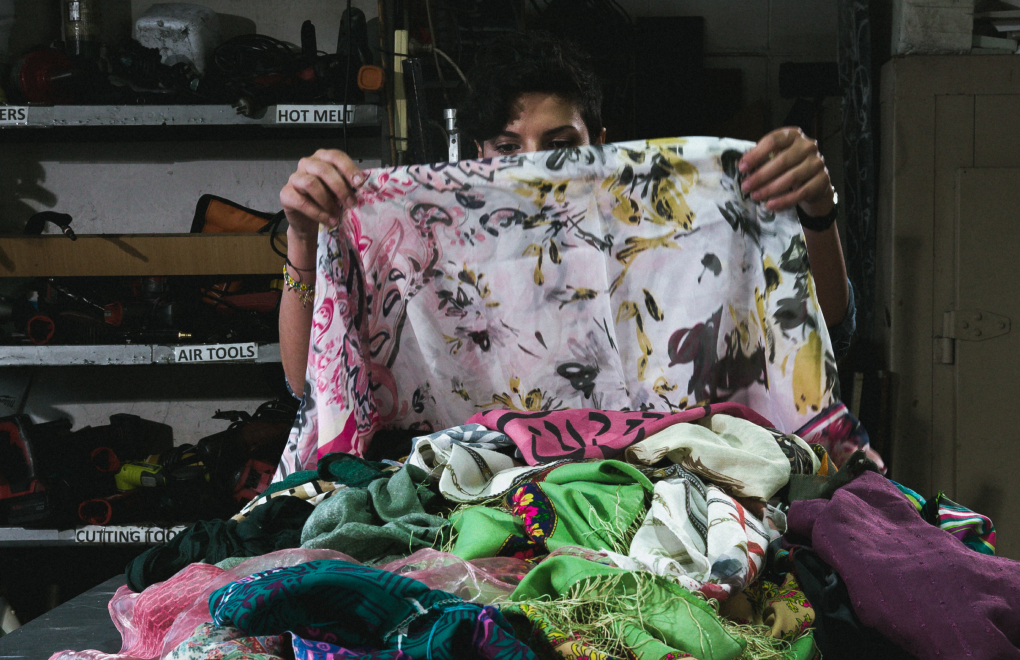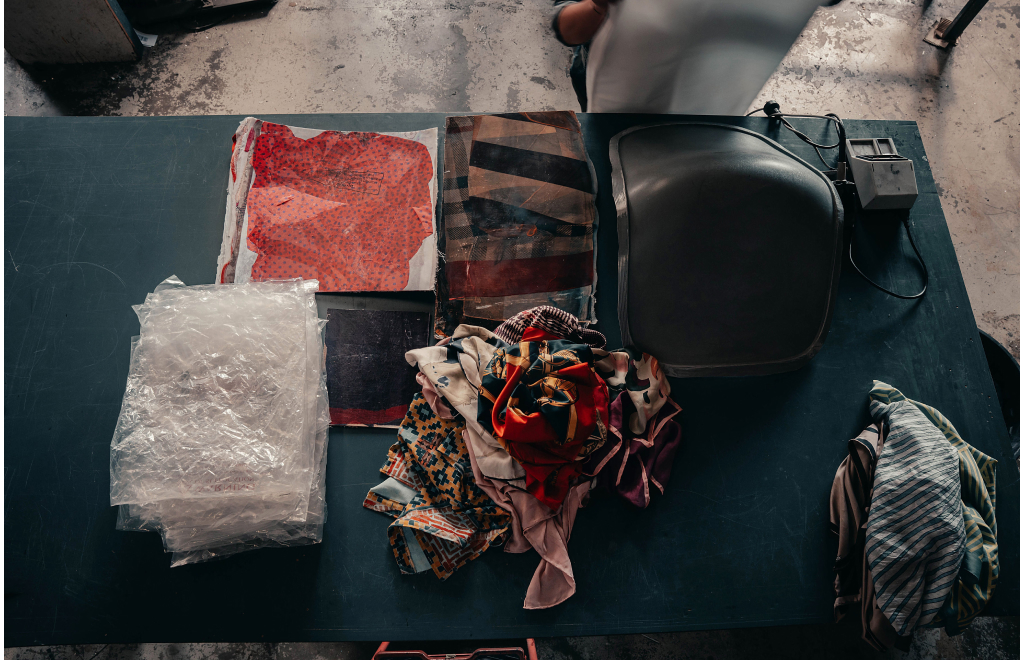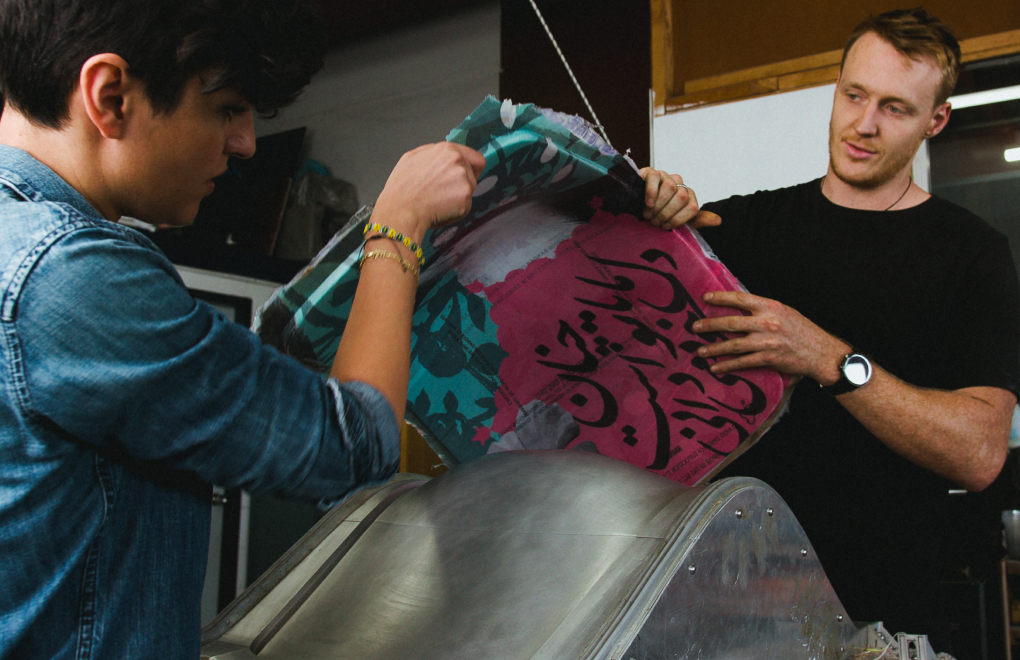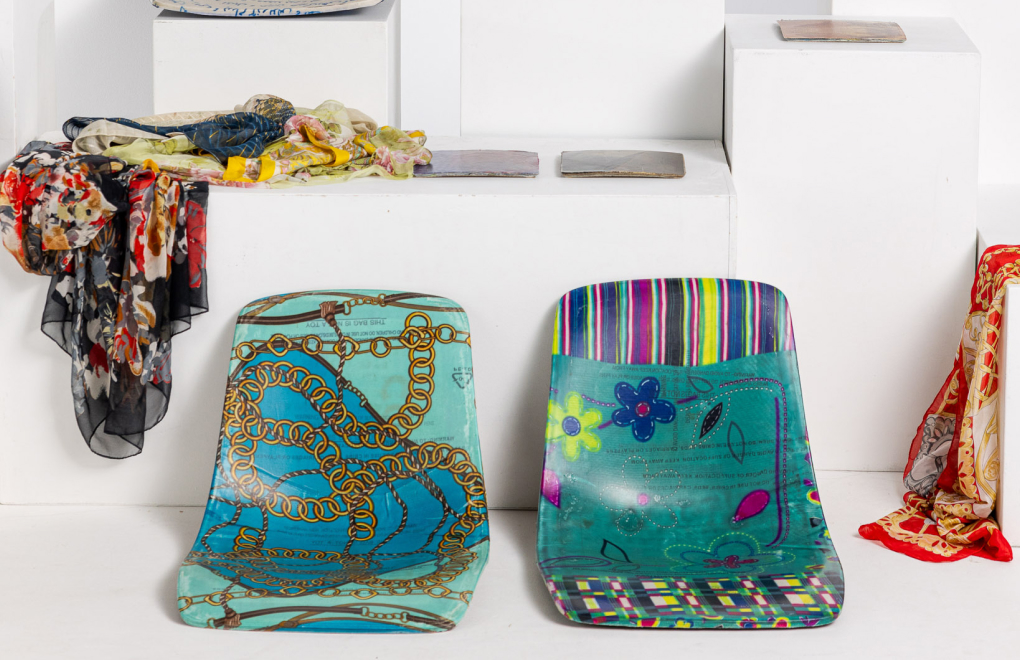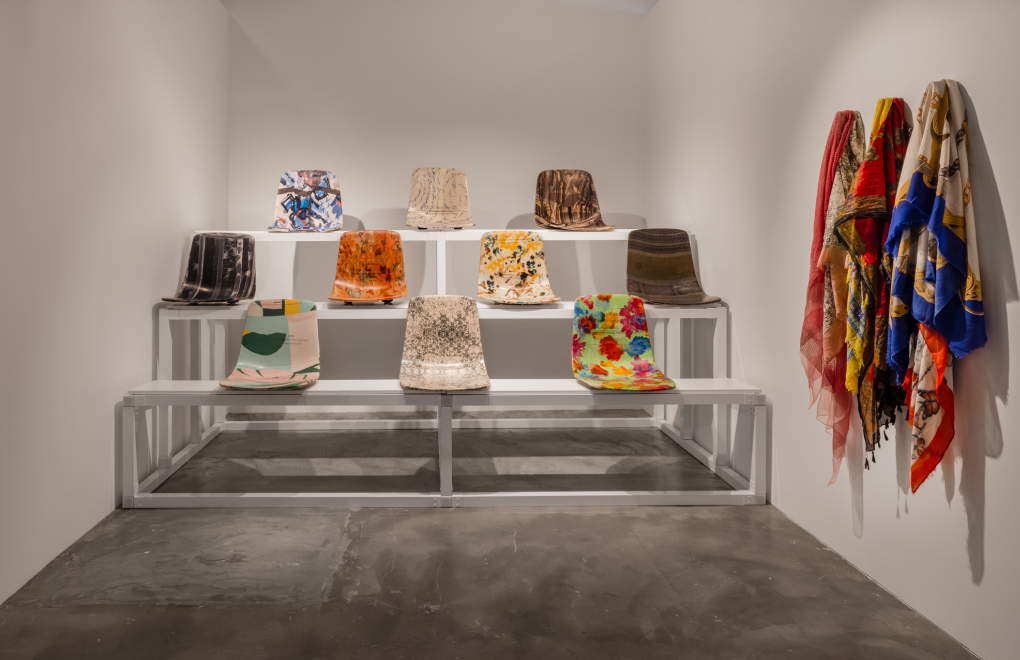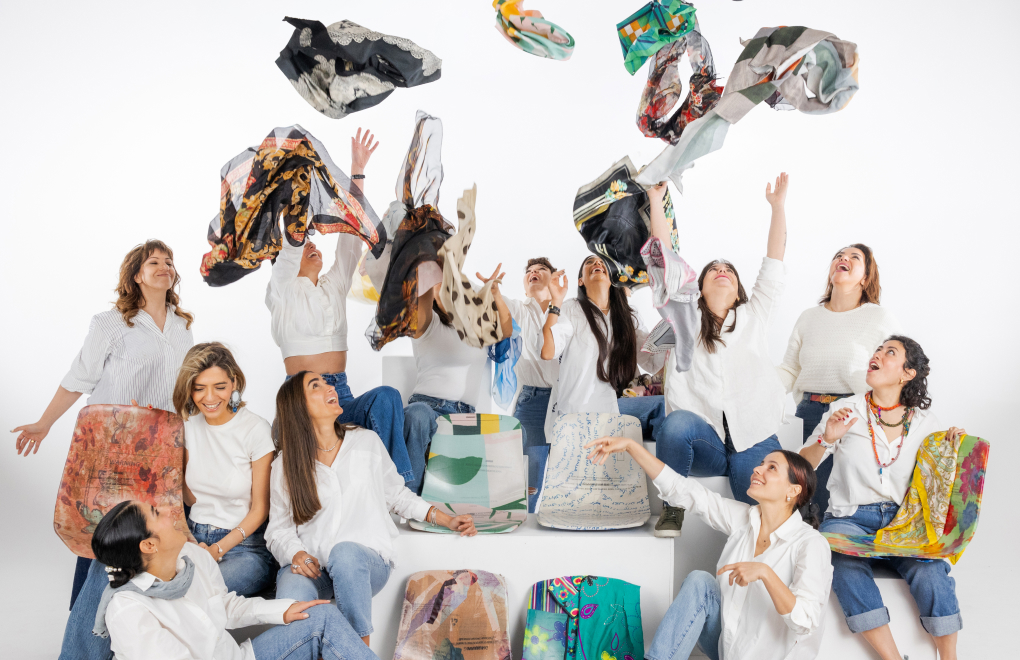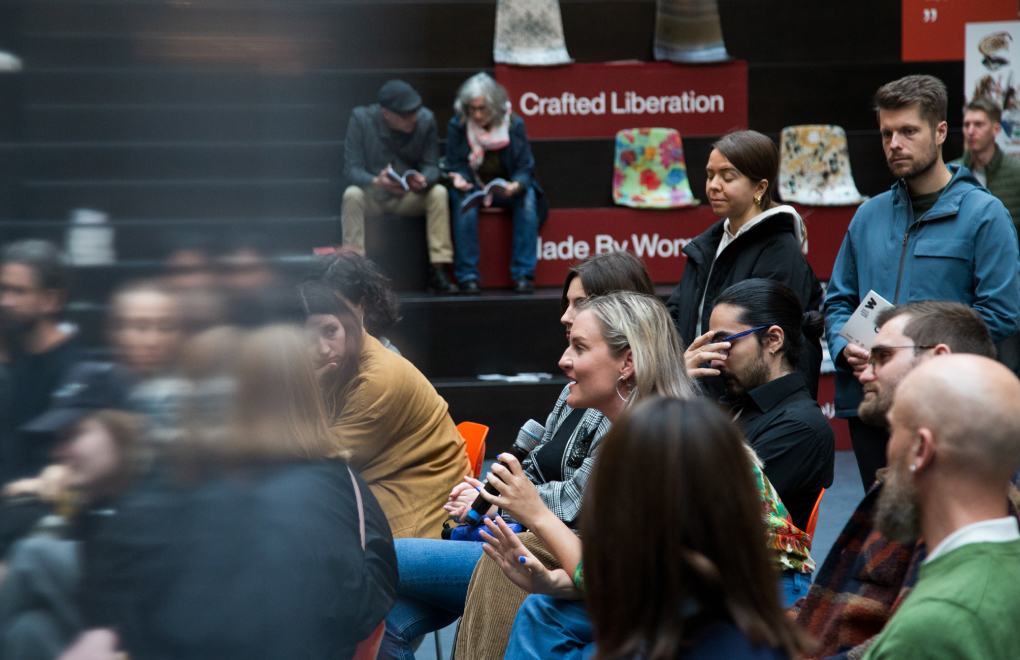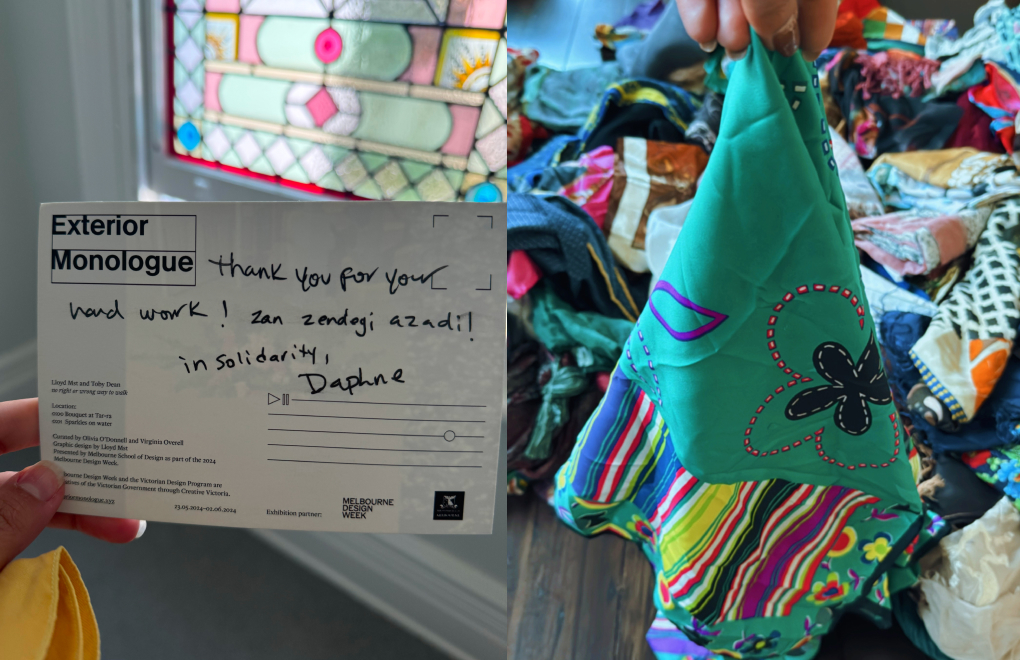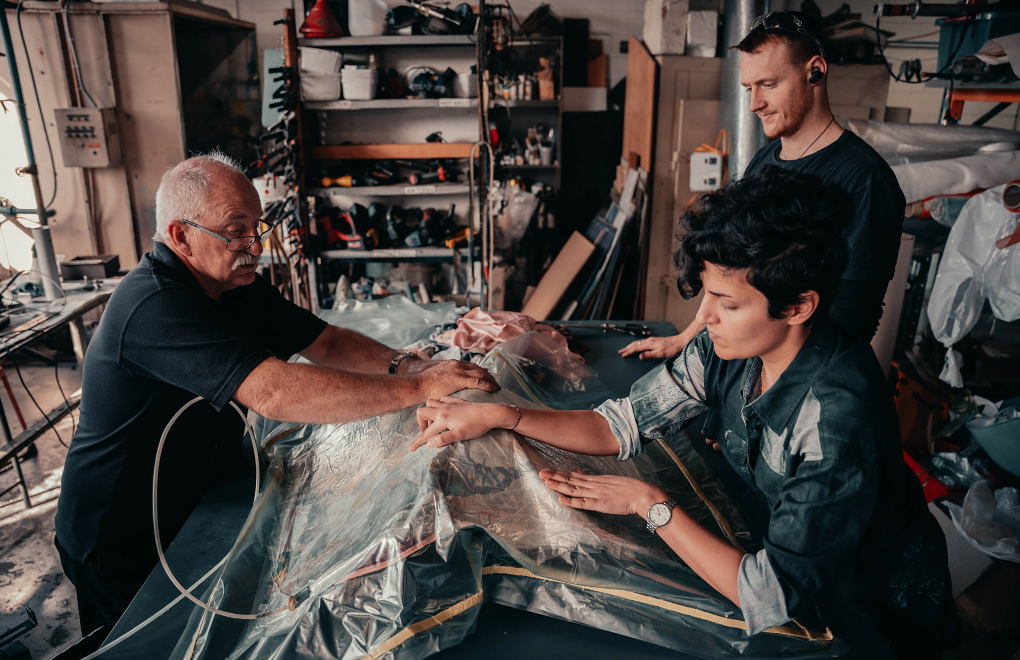Project Overview
Crafted Liberation is a participatory design project spanning Sydney, Australia (product and project development), Tehran and multiple cities in Iran (headscarf collection), as well as Eindhoven, Jakarta, Zlín, Berlin, and Älmhult
Project Details
General Information
Crafted-Liberation is a participatory design project born from the everyday realities of Iranian-women facing systemic oppression. Sparked by the 2022 death of Mahsa Jina Amini in morality police custody and the Women.Life.Freedom protests that followed, the project began with a question: how can design offer a safe, collective form of resistance? We invited Iranian women, both in Iran and in diaspora, to anonymously donate their unwanted-headscarves, transforming a tool of oppression into a beacon of empowerment. Working with Australian R&D partners, the scarves were combined with recycled soft plastics to develop a new fiberbased composite. This meaningful, upcycled material was compression-moulded into stadium seats, objects that typically exclude women in Iran, now reimagined as symbols of resistance, presence, and dialogue. Beyond material-innovation, the project centres co-authorship, circularity, and cultural healing. Each seat carries stories gathered through grassroots storytelling and digital archiving, creating emotional and environmental sustainability. Launched in 2023, Crafted Liberation continues to grow across borders and is supported by government funding and a global network of contributors. It offers a replicable model where adaptive-reuse and social-participation meet. By reimagining an everyday object, it fosters harmony between people, society, and the environment through care-based, community-driven design.
Creative Solution (Creativity/Innovation)
Crafted Liberation amplifies a social protest through material innovation, showing how design can empower marginalized voices and turn acts of oppression into collective agency. It merges participatory design, material innovation, and storytelling to transform rejected headscarves into functional public seats. Through a global call-out, over 550 women anonymously contributed unwanted scarves, combined with recycled plastic to create a durable fiber composite. This adaptive reuse enables textile and plastic waste to become meaningful public infrastructure. By inviting communities to shape both material and message, the project reclaims space through care, protest through beauty, and builds a replicable model for transformation.
Social Impact (Inspiration/Impact)
Crafted-Liberation creates space for Iranian-women globally to participate in protest without fear, through anonymous donation, co-curation, and creative authorship.
This safe, symbolic act of protest creates transnational solidarity amongst the participants, while also engaging broader communities in questions of gender, voice, and visibility. Crucially, the project invites public interaction with the seats, making resilience tangible, beautiful, and shared. When communities co-create the objects they see in public-space, they care for them longer. This emotional investment strengthens both social and material longevity, offering a replicable model where environmental circularity and cultural agency reinforce each other in the fabric of everyday life.
Participation/Cooperation
Iranian women were invited to co-create by anonymously donating scarves, notes, and stories. We engaged them through social media and grassroots networks, providing a PO box and coordinating bulk collection. Guided sessions like our storytelling circle involved the broader community in shaping meaning, fostering connection, and building cultural understanding.
Vision for the Future
Crafted Liberation envisions a future where design is not decorative, but transformative, where participation fosters stewardship, and infrastructure carries collective authorship.
Its process invites communities to co-create public objects that embed their stories into place. It offers a replicable, scalable method for turning waste and marginalisation into civic products rooted in care, beauty, and belonging.
What began with Iranian women now connects strangers worldwide through threads of solidarity. This is not just a seat, it’s a system for visibility, empathy, and shared belonging that can scale across geographies, demographics, and struggles.

